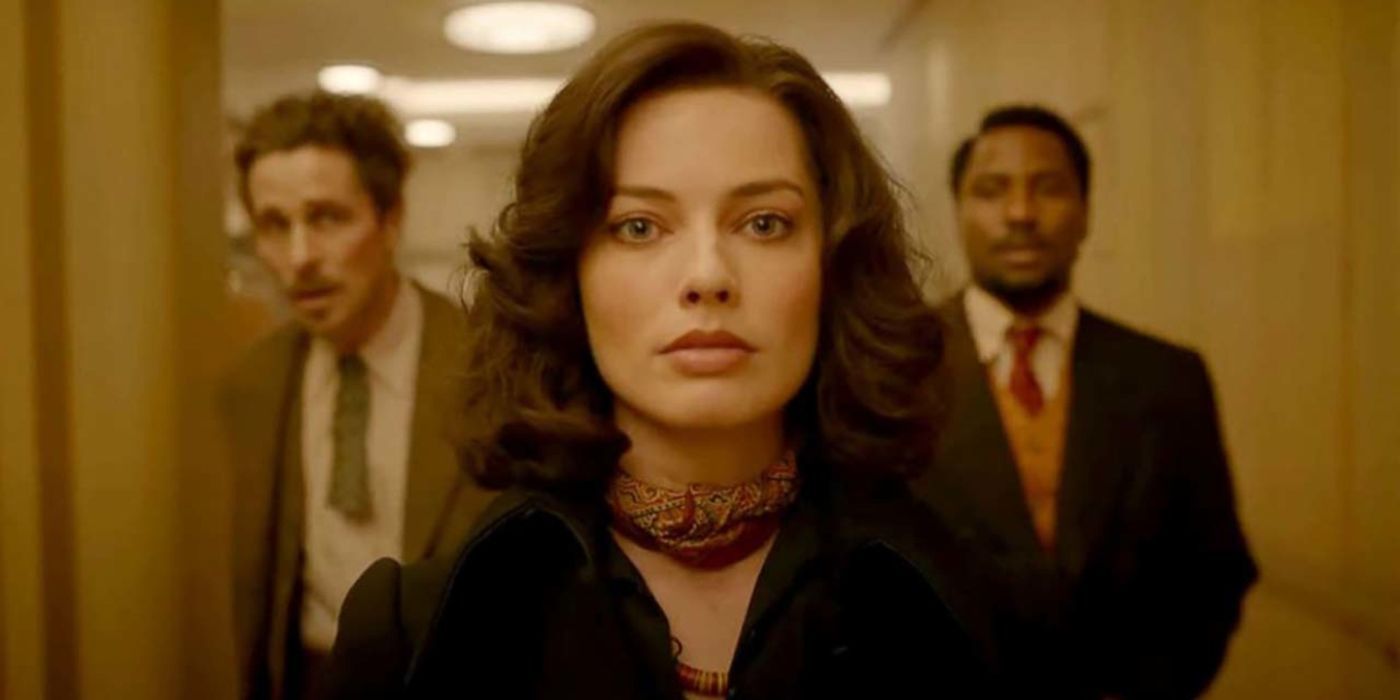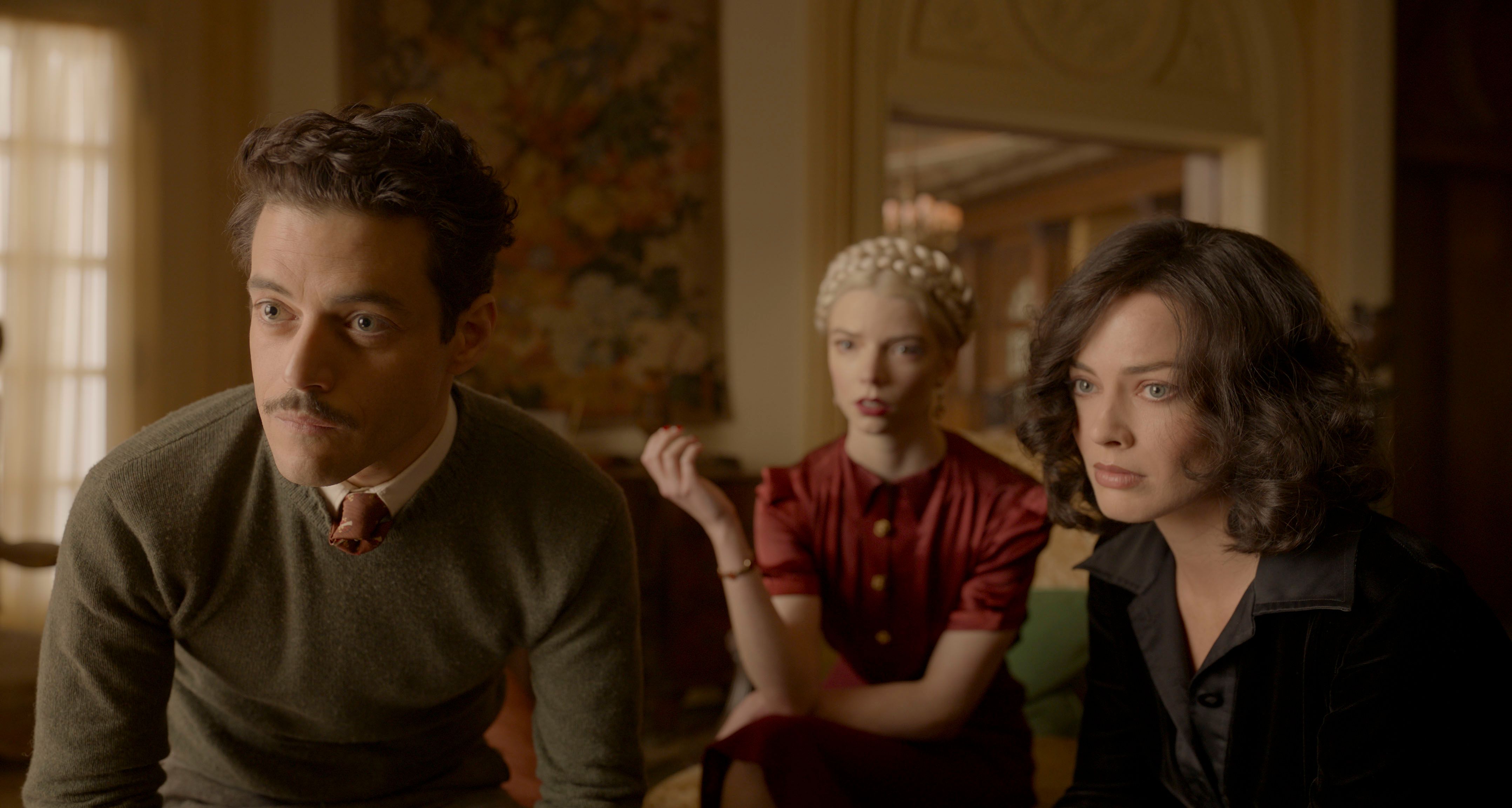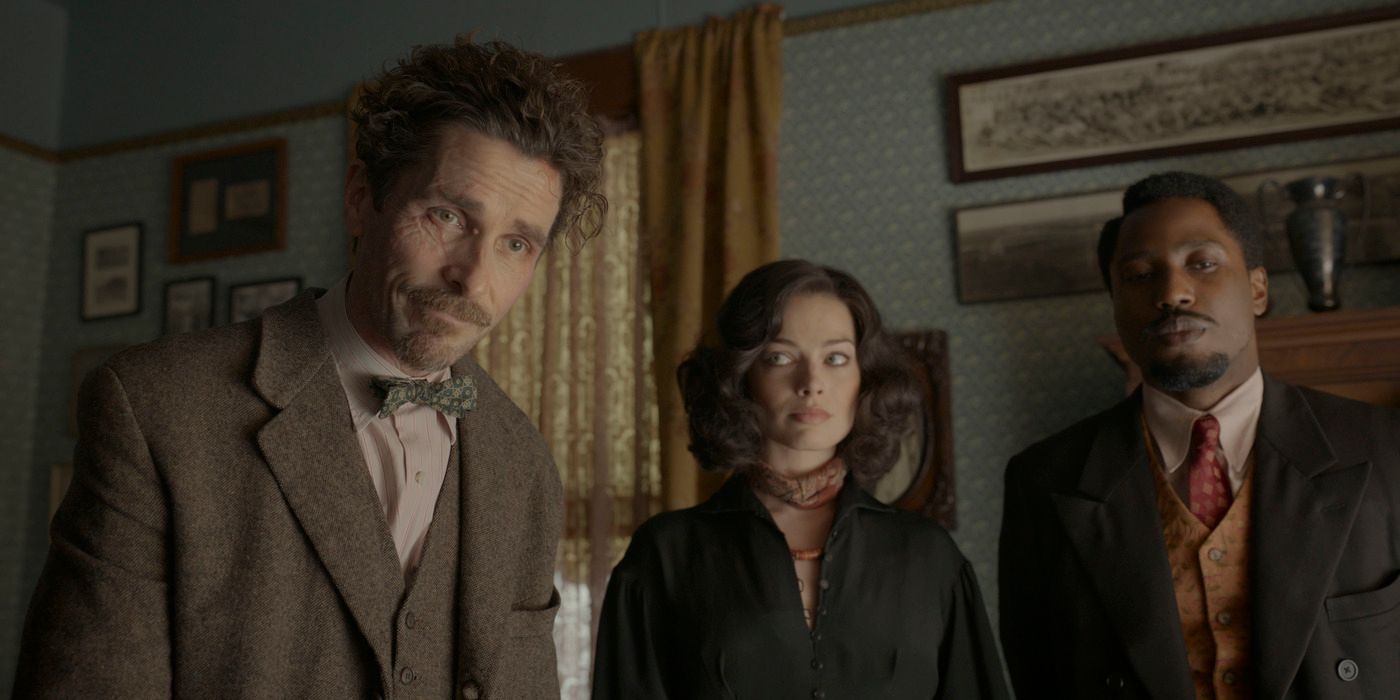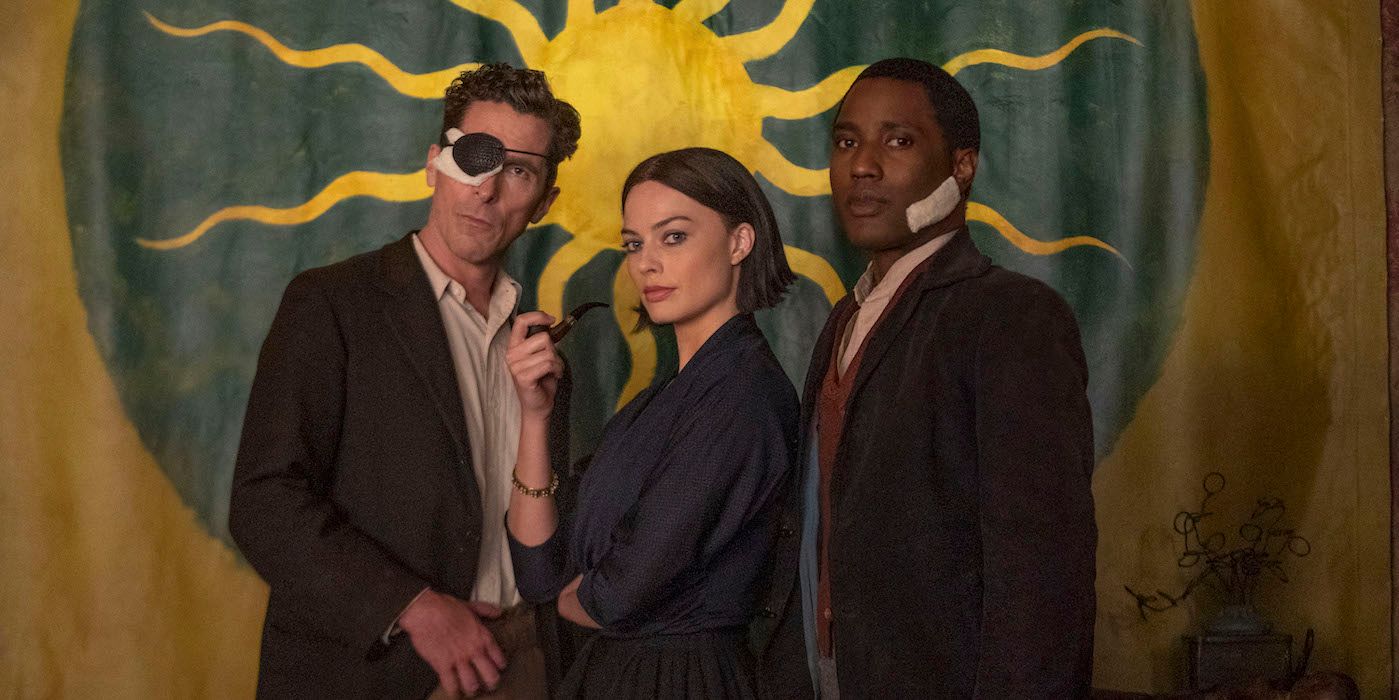Written and directed by David O. Russell and inspired by historical facts, Amsterdam follows best friends Dr. Burt Berendsen (Christian Bale) and attorney Harold Woodman (John David Washington) who, along with an unusually artistic nurse named Valerie Voze (Margot Robbie), find themselves on an adventure in the 1930s that leads to them being at the center of a murder investigation. The film also stars Robert De Niro, Rami Malek, Andrea Riseborough, Mike Myers, Michael Shannon, Alessandro Nivola, Anya Taylor-Joy, Chris Rock, Zoe Saldaña, Matthias Schoenaerts, and Taylor Swift.
During this conference about how Amsterdam evolved into what it is now, Russell was joined by Bale, Washington, and Robbie to talk about the five-year process of meeting in a diner to work on the script and characters, how her character inspired Robbie to create her own artwork, establishing the friendship dynamic between Burt and Harold, and what they consider to be their own personal Amsterdam.
QUESTION: David, you and Christian Bale started talking about this project quite a few years ago. What made this happen?
DAVID O. RUSSELL: Christian and I were very interested in creating original characters that we would want to hang out with, that he would love to play, and that I’d love to be around. We wanted them to be characters that we’ve never seen before and that no one has ever seen him, Margot [Robbie], John David [Washington], or any of these people be before. That’s where it began. We started with a doctor, and we started to learn from history the unusual circumstances of this doctor and his two best friends. We wanted to have three best friends who were fixers, who could handle any situation, and who went through something together that was epic, would be fun to follow, would be inspiring, and would also shine a light on some history that we had a hold of, that many people don’t know. We didn’t know either, as we discovered it. So, we met in a diner, over the course of five years. Margot joined in maybe three or four of those years, and other people joined in over those years, as part of the conversation.
CHRISTIAN BALE: It was a lot of eggs and a lot of coffee.
RUSSELL: It was fun to meet several times a week. As a writer, being alone for 30 years of writing, it’s nice to be able to go talk to a friend, or colleague, or collaborator to grow it together.
BALE: I was involved with it for five or six years, but I feel like his entire life, he’s been working up to doing this, with the wisdom of how to deal with adversity, the absolute love of people who deal with pain and suffering in their lives with optimism and hope, and not becoming broken by life. I was just delighted and have so much gratitude to David, for inviting me along for this epic journey.
David, a lot of the characters in your films are the underdog, and they retain this resilience. Margot, your character, Valerie, really has that too. What was the process of figuring out who she would be?
MARGOT ROBBIE: Fortunately, I had a long time to prep Valerie, longer than I’ve ever had to prep a character. That was not only because David was so collaborative that he wanted to speak about Valerie and this film, in general, years before we made it, but then also because we shut down because of COVID. I really had a long time to prep Valerie, maybe a little too long, to be honest. I started making a lot of Valerie art, at home in lockdown, and it was getting very weird. She’s cooky and artistic and nuts.
RUSSELL: And fantastic.
ROBBIE: At one point, my husband walked in, and I had bits of metal and fake blood, and I had my Super 8 out, and I had a mask on, and I had all this crazy stuff. He was like, “I think you’re taking this character too far. You need to calm down.” And I was like, “Okay.” I fell in love with her. She just really marches to the beat of her own drum. The friendship pact that she makes with Harold and Burt is everything to her. David and I spoke a lot. I have a very close trio, similar to this. We ironically all met in Belgium, as well. For all of us and all of our characters, not to speak for everyone else, but you do end up infusing parts of yourself in there. I think that comes across in a very authentic way on camera. There are things drawn from history, and maybe your own personal history. And then, David will say something on the day, and everyone will just roll with it, in the moment, and it ends up on screen. That made this magical, strange movie that we have.
Did any of the art that you made end up in the film?
ROBBIE: Some of the Super 8 stuff that I shot during lockdown is in there.
RUSSELL: These are characters that are based on some historical characters, who went through tremendous things together. In some way, all of my movies have been about this. Whether it’s The Fighter, or Silver Linings, or American Hustle, or Joy, they’re about outsiders who find their way and find reasons to love life, in spite of whatever it is they’re facing. That’s what the notion of Amsterdam is. What do you love about life and each other, that you live for? She made this art based on this artist. It could only have come out of someone who pulled bloody metal out of John David and Christian, Harold Woodman and Burt Berendsen during the war. Everyone makes very specific pacts with each other. They have a friendship pact that’s very specific. She’s based on the art of Meret Oppenheim, Hannah Hoch, and even Georgia O’Keeffe, who broke all new ground. She made it in her house. The cinematographer and I, and Linder Sterling, an actual visual artist in England who made some of the art with Judy Becker, our designer, said, “Wow, this is as good as it gets,” what Margot made at her house. It’s in the movie, and we’re very excited about that. They really immersed themselves in every aspect of their characters.
Friendship is a core theme in this movie. John David, can you talk about the three best friends and their pact together? What was that dynamic like?
JOHN DAVID WASHINGTON: Just from the performance perspective, the bedrock of this set was one of humility and optimism. So it was an easy way in when we were starting with love and respect for one another. There were no egos that I felt on the set, so that made it easier to let your guard down, to be vulnerable, to try anything, and to maybe fall on your face, because you know your cast members would pick you up. Christian Bale was a great leader, in that way. The second day on set, he came into my little quarters and said, “Welcome. You made it through your first day. It’s gonna get better from here.” That’s important. That was great. He didn’t have to do that. He could’ve gone straight to his trailer. But it was the end of the day, and he decided to tell me that. In knowing that, that’s gonna affect your performance. It’s gonna inform how you listen to your partners, how you receive what they’re saying, and how you receive notes from David O. Russell. If you’re comfortable with that, and if you know that this foundation is based off of humility and everybody championing one another, then that makes it easier and smooth and enjoyable to find the answers to the questions of your characters and their motivations.
RUSSELL: John David dove into the research.
WASHINGTON: I did, indeed. I got obsessed with it. I was getting all this information about double victory, and what it was like for African Americans to fight for this country, what it was like fighting over there, and what kind of freedoms they had. They had more freedoms there, in a lot of ways, than they did in their own country. Amsterdam Newspaper was started by a black man in Harlem. It’s little things like that, that may or may not make the film, but it’s a touchstone that’s something that you can have, that you can hold one to, and that can inform how you listen and how you react and respond to your co-stars.
RUSSELL: Christian’s character is based on an actual guy named Dr. Shields, who was the officer that joined that regiment and introduced these two guys under very unlikely circumstances. Christian and I would look at these big pictures from the period, of people partying in huge dance halls, and we’d go, “Look at these two people dancing together. I’ve never heard their story. I don’t think anybody has recorded their story.” A lot of history is not actually recorded. So, we took some recorded history that’s explosive and fascinating. That’s our secret plutonium for any filmmaker to share, as a dramatic tool. We then invented our own friendship of those who were never really recorded, and the people they got to meet along the way, who are all these people on a journey to save themselves. That was the invented friendship of the greatest freedom they ever had and fun they ever had together. That made life worth living for all of them. When they faced death, they said, “Let’s live.”
Christian, what keeps bringing you back to working with David O. Russell?
BALE: Like any great filmmaker, David is very unique. He’s very special. He has his own perspective. It’s what makes great filmmakers fascinating, and he’s one of the greats. I love that we met and that he invites me back. Every time we work together, we get ten more days on the schedule. With this, I was just really grateful that David invited me along for the whole journey, sitting in diners writing on napkins and being gob-smacked by actual events in history that we’d never heard of, listening to music, watching documentaries, reading books, and inventing these characters. It was a joy, from beginning to end.
RUSSELL: On The Fighter, we had 30 days. On American Hustle, we had 42 days. With this one, we got to 50.
BALE: The next one will be 60.
What is your own personal Amsterdam?
BALE: I think my Amsterdam is anything when you have to become so obsessed, in a healthy way, with something that you can’t think about anything else. I get that in great environments. I get that from working with David and [this cast]. I get that from wonderful filmmaking experiences. I get that from my family. I get that from motorcycles.
RUSSELL: One of the great things I’ve learned from [Robert De Niro] is that, from a very young age, when he was making Taxi Driver, he somehow had an eye for places that were special. He’s told me stories about when he was hitchhiking and ended up in the Caribbean with strangers from Europe and still visits that beach, to this day. Bob is all about finding these special places and making special gatherings. He’s taught me, many times, how important it is, to just make a moment and appreciate it, and how important it is to come together. That’s a wonderful thing.
WASHINGTON: I recently spent about six months in Thailand, in Chiang Mai. I rediscovered what peace means, at least in my life, because of that place. I pride myself on being respectful and humble, and you can’t out-respect those people out there. Whatever they’re going through, they’re always going to take time to say hello and make sure that you’re okay. From the crew members I worked with, to just the everyday living and working people, I’ve never experienced that kind of peace. It was some of the best sleep I’ve ever had, on a consistent basis. I found myself in a therapy session with an 85-year-old elephant, just telling them all my problems, and for some reason, I feel like she understood me. So, I’d say Chiang Mai, and that whole experience was my Amsterdam. Time stood still.
ROBBIE: Just like Valerie, I met two of my best friends in Belgium, and I married one of them.
RUSSELL: She became really good friends with two guys when she was quite young. They had such a good time together that the movie had to separate them because the movie wouldn’t have happened. They were having such a good time. And she embraced them both in her life. One shares her home life, and they both share her professional life.
ROBBIE: Yeah, we started a company together.
RUSSELL: For me, I would agree with Christian that part of the reason why we loved getting together at a diner, every week for five years, is because we liked focusing obsessively on a story. As many artists that I’ve met have liked to say, isn’t it fun to live in a story that you’re either reading to your child, or reading with your friends, or your mates, and sharing it? We were creating a story that we were sharing, obsessively. That is my Amsterdam, as a storyteller. I’m so happy when I’m living in a story that I’m creating or a work of art that I’m making. I would say that also extends to my family and the wonderful moments that are unplanned, like when you lose the power in your house and you’re thrown together in adverse circumstances, and you think it’s gonna be a drag, but it turns out to be fantastic. I’ll cherish those moments, forever.
Amsterdam is now playing in theaters.




